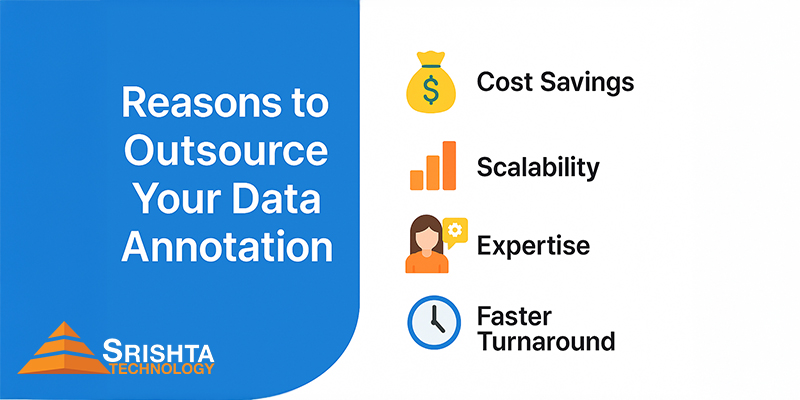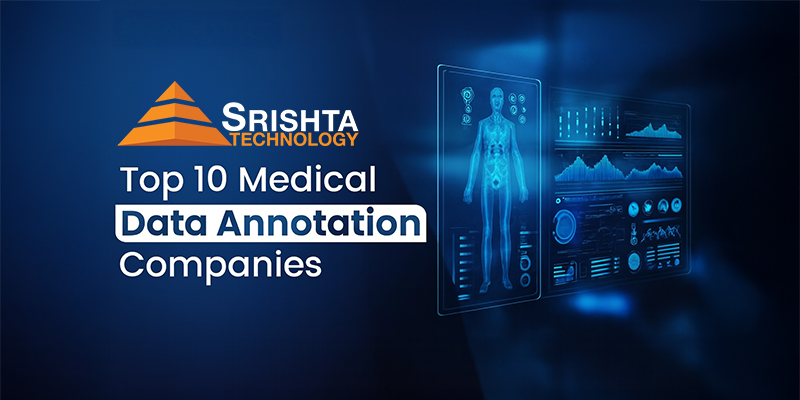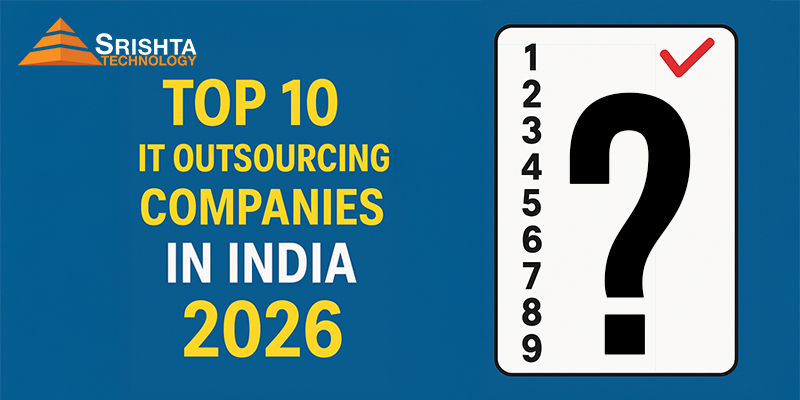The healthcare industry is rapidly evolving, and mobile health apps (mHealth) are playing an essential role in shaping the future of healthcare. Whether it’s empowering patients to track their health, enabling doctors to provide telemedicine services, or helping healthcare organizations streamline operations, mobile apps are becoming indispensable tools in modern healthcare.
In 2025, the integration of mobile technology in healthcare will continue to expand, offering vast opportunities for improving patient outcomes and operational efficiencies. However, building a successful healthcare app goes beyond just adding features—compliance and data security are paramount.
This blog will discuss the must-have features of a healthcare mobile app and provide compliance tips to ensure your app meets industry standards. Additionally, we’ll explore how Srishta Technology can assist you in creating a powerful healthcare mobile app that addresses both your patients’ needs and regulatory requirements.
Cloud Migration Services in India
Why Healthcare Mobile Apps Are Essential in 2025
The healthcare landscape is evolving quickly with the rise of telemedicine, remote patient monitoring, and patient-centric healthcare models. According to a 2024 report, the global mHealth market is expected to surpass $100 billion by 2025, driven by the growing demand for mobile health solutions.
Patients are more informed and engaged than ever, expecting real-time access to their healthcare information, virtual consultations, and tools for managing chronic conditions. Healthcare apps have become a solution to these demands, enabling better patient care, cost reduction, and operational efficiency.
Key Benefits of Healthcare Mobile Apps
-
Improved Patient Engagement: Healthcare apps offer patients tools for managing their health, such as appointment scheduling, medication reminders, and access to lab results.
-
Remote Care and Telemedicine: Doctors can provide consultations through video calls, allowing patients to receive care from the comfort of their homes.
-
Streamlined Operations: Healthcare providers can automate scheduling, patient records management, and inventory tracking.
-
Data-Driven Insights: Apps can collect data for analyzing health trends, improving care delivery, and enhancing decision-making.
In 2025, building a mobile app for healthcare not only provides value to patients and healthcare providers but also positions your organization at the forefront of innovation.
Must-Have Features for Healthcare Mobile Apps
When developing a healthcare app, the features you incorporate must address both the functional needs of users and the regulatory requirements of the healthcare industry. Here’s a breakdown of the essential features that should be included in a healthcare mobile app:
1. User-Friendly Interface (UI) and UX Design
The design of the app is critical to its success. Whether the user is a patient, healthcare provider, or administrator, the app must be intuitive, accessible, and easy to navigate. A clean, simple design enhances user engagement and satisfaction.
-
Patient portal: Patients should easily access their personal health records, prescriptions, and appointment history.
-
Appointment scheduling: Allow users to book and manage appointments with healthcare professionals.
-
Search functionality: A simple and effective search tool for finding doctors, clinics, or specific treatments.
-
Multilingual support: If your app caters to a diverse audience, include multilingual options for better accessibility.
2. Telemedicine Features
Telemedicine is a game-changer for healthcare, offering virtual consultations with healthcare providers. These features not only help patients who cannot visit in person but also improve access to specialists.
-
Video consultations: Integrate secure video calling functionality for real-time consultations between patients and doctors.
-
Consultation scheduling: Allow patients to schedule virtual appointments, similar to in-person visits.
-
Digital prescriptions: Doctors can send electronic prescriptions directly to patients, eliminating the need for physical copies.
3. Patient Records and Health Data Management
Healthcare apps need to securely store and manage sensitive patient information, such as medical records, treatment plans, and lab results. This is essential for providing continuity of care.
-
Electronic health records (EHR): Maintain up-to-date records of a patient’s medical history, allergies, diagnoses, and treatment.
-
Health data sync: Sync data from wearable devices (like fitness trackers or smartwatches) to monitor vital signs such as heart rate, steps, and sleep patterns.
-
Lab test results: Allow patients to view and download lab test results directly from the app.
4. Medication Management and Reminders
Healthcare apps can be incredibly helpful in ensuring that patients take their medications on time. For those managing chronic conditions, this feature is crucial in improving medication adherence.
-
Medication tracking: Patients can log their medication schedules and track doses.
-
Reminder notifications: Set up reminders to alert patients when it’s time to take their medication or refill prescriptions.
-
Side effects monitoring: Enable patients to track any side effects and report them to their healthcare providers.
5. Secure Messaging and Communication
For a healthcare app to be effective, communication between patients and providers must be seamless and secure. Secure messaging allows for the exchange of confidential information without the risk of breaches.
-
Encrypted messaging: Ensure that all messages exchanged between patients and healthcare professionals are encrypted.
-
Doctor-patient chat: Patients should be able to communicate with their doctors in a secure, private chat feature for follow-up questions or concerns.
6. Wearable Device Integration
Integrating your healthcare app with wearable devices such as fitness trackers, smartwatches, and glucose monitors is essential for monitoring patients’ health in real-time. These integrations allow for the continuous tracking of vital signs like heart rate, steps, and blood pressure, providing healthcare providers with crucial data to make informed decisions.
-
Real-time health monitoring: Data from wearable devices is automatically synced to the app for real-time tracking.
-
Health insights: Use the data to generate health reports, track trends, and predict potential health issues.
7. Billing and Insurance Integration
Simplifying the billing and insurance claim process can significantly enhance the patient experience. Healthcare apps that integrate payment options, insurance verification, and bill tracking streamline administrative tasks and reduce friction for patients.
-
Secure payments: Allow patients to pay bills through secure payment gateways integrated into the app.
-
Insurance verification: Ensure that patients’ insurance details are easily accessible and verify insurance coverage for treatments.
-
Invoice management: Send invoices to patients directly within the app, allowing them to view, download, and pay.
8. Appointment Reminders and Notifications
Missed appointments can be a significant issue in healthcare settings. To minimize this, your app should include reminder notifications to alert patients about upcoming appointments.
-
Automated reminders: Send text, email, or push notifications to remind patients about upcoming consultations or check-ups.
-
Rescheduling options: Allow patients to reschedule appointments directly through the app.
9. Emergency Services Integration
In critical situations, patients need quick access to emergency services. Integrating emergency services and first-aid guidance can make a significant difference in patient outcomes.
-
Emergency contact information: Provide easy access to emergency numbers or the nearest hospital.
-
SOS button: Enable an emergency button that immediately contacts the nearest emergency service provider.
Healthcare App Compliance: Key Tips for 2025
As healthcare mobile apps handle sensitive patient data, compliance with regulations is a top priority. Here are some compliance tips to ensure your app meets industry standards:
1. HIPAA Compliance (USA)
For apps operating in the United States, Health Insurance Portability and Accountability Act (HIPAA) compliance is mandatory. HIPAA mandates strict guidelines for data protection and privacy in healthcare. Here’s how to stay compliant:
-
Encryption: All sensitive patient data must be encrypted both in transit and at rest.
-
Access controls: Ensure that only authorized personnel can access confidential health data.
-
Audit logs: Maintain logs of who accessed patient information and what changes were made.
2. GDPR Compliance (EU)
For apps serving European users, compliance with the General Data Protection Regulation (GDPR) is essential. The GDPR protects the privacy and data of EU citizens, and failure to comply can result in significant fines. Key aspects to consider:
-
Data consent: Always obtain explicit consent from users before collecting any personal data.
-
Data rights: Allow users to access, correct, and delete their personal data.
-
Data storage: Ensure data is only stored as long as necessary and is securely deleted when no longer needed.
3. FDA Compliance for Medical Apps (USA)
For apps that provide medical devices or diagnostic tools, compliance with the Food and Drug Administration (FDA) regulations is required. This includes:
-
Medical device classification: Ensure the app is classified correctly (e.g., as a Class I, II, or III device) depending on its functionality.
-
Software validation: Verify that the app performs as intended to avoid medical errors.
4. Data Security Standards
Healthcare apps must adhere to strict data security standards to prevent unauthorized access to sensitive information. Implementing features such as:
-
Two-factor authentication (2FA): Require two layers of security to access sensitive data.
-
Data encryption: Use robust encryption protocols (e.g., AES-256) for data storage and transmission.
-
Regular security audits: Regularly audit your app’s security protocols to identify vulnerabilities.
Why Every eCommerce Business Needs a Mobile App in 2025
Frequently Asked Questions (FAQ)
1. What is a healthcare mobile app, and why is it important?
A healthcare mobile app is a software application designed to facilitate various healthcare services and features on mobile devices. These apps are typically used by patients to manage their health, by healthcare providers for telemedicine or communication, or by organizations for operational efficiency. With the rise of telemedicine, remote patient monitoring, and patient engagement tools, these apps are becoming essential in improving healthcare delivery, reducing costs, and enhancing patient outcomes.
2. What are the must-have features of a healthcare mobile app?
Some of the key features a healthcare mobile app should include are:
-
User-friendly design with easy navigation
-
Telemedicine and video consultation capabilities
-
Health data management, such as electronic health records (EHR)
-
Medication reminders and adherence tracking
-
Wearable device integration for real-time health monitoring
-
Secure messaging for communication between patients and healthcare providers
-
Appointment scheduling and reminders
-
Insurance and billing management
-
Emergency services integration for quick access to help in critical situations
These features ensure a comprehensive healthcare solution that addresses the needs of both patients and providers.
3. How can I ensure that my healthcare app is HIPAA-compliant?
To ensure that your healthcare app is HIPAA-compliant, the following steps are necessary:
-
Data encryption: Encrypt both patient data at rest and during transmission to protect it from unauthorized access.
-
Access control: Restrict access to sensitive information based on roles and responsibilities.
-
Audit trails: Implement logging features to record who accesses patient data and what actions they take.
-
Secure messaging: Use secure, encrypted communication channels for doctor-patient messaging.
-
Data breach response: Create a plan for responding to data breaches, ensuring you follow HIPAA protocols if an incident occurs.
4. How can Srishta Technology help with developing a healthcare mobile app?
Srishta Technology specializes in creating customized healthcare mobile apps tailored to meet your business and regulatory needs. From HIPAA compliance to user-friendly UI/UX design, we guide you through every step of the development process, ensuring that the app is:
-
Secure and compliant with all healthcare regulations (HIPAA, GDPR, etc.)
-
Feature-rich to include essential tools like telemedicine, appointment management, and medication tracking
-
Scalable and future-proof, ensuring your app can grow with the evolving needs of the healthcare industry
-
Optimized for performance, ensuring a seamless user experience
Our experienced team will help you create a solution that is both functional and secure, with a focus on improving patient outcomes and enhancing operational efficiency.
5. How do healthcare mobile apps improve patient engagement?
Healthcare mobile apps improve patient engagement by providing tools that allow patients to manage their health actively. Features like medication reminders, appointment tracking, and personal health records empower patients to take control of their health and make informed decisions. Additionally, telemedicine features make it easier for patients to consult with healthcare providers from the comfort of their homes, encouraging them to seek care when needed and stay connected with their doctors.
6. What are the key compliance requirements for healthcare apps?
Healthcare mobile apps must adhere to various regulations, including:
-
HIPAA (USA): Ensures the protection of patient data and mandates secure data handling and transmission.
-
GDPR (EU): Requires patient consent before collecting personal data and ensures patients have control over their data.
-
FDA regulations: If your app involves medical devices or diagnostics, it must comply with FDA standards.
-
Data security standards: Implement encryption, secure access, and regular security audits to safeguard patient data.
Ensuring compliance with these regulations is critical to avoid penalties and protect patient privacy.
7. How can wearable devices integrate with healthcare apps?
Wearable devices, such as fitness trackers, smartwatches, and blood glucose monitors, can be integrated with healthcare apps to provide continuous health monitoring. By syncing data such as heart rate, steps, sleep patterns, and blood pressure, healthcare apps can provide real-time insights into a patient’s health. This data can then be shared with healthcare providers, enabling better-informed decisions and early interventions when necessary. Integration with wearables also helps with chronic disease management and enhances the patient’s engagement with their own health.
8. What are the main security challenges in healthcare mobile app development?
Security is a significant concern when developing healthcare mobile apps due to the sensitive nature of patient data. Some common security challenges include:
-
Data breaches: Ensuring that unauthorized parties cannot access personal health information.
-
Inadequate encryption: Failure to use strong encryption for data storage and transmission can expose patient information.
-
User authentication: Weak authentication methods (like simple passwords) can lead to unauthorized access.
-
Compliance gaps: Not adhering to regulatory frameworks like HIPAA and GDPR can result in vulnerabilities.
To mitigate these challenges, healthcare apps should use end-to-end encryption, multi-factor authentication, and regular security audits to ensure robust data protection.
9. How do healthcare apps help with operational efficiency?
Healthcare apps can streamline administrative tasks and reduce operational inefficiencies by automating processes like:
-
Patient scheduling and appointment management
-
Patient check-ins and data collection
-
Medical records management, including EHR systems
-
Inventory management for medical supplies and pharmaceuticals
-
Billing and insurance claims processing
By automating these tasks, healthcare providers can reduce the workload on administrative staff, minimize human error, and focus more on patient care.
10. What is the future of healthcare mobile apps in 2025?
The future of healthcare mobile apps in 2025 is promising, with AI, machine learning, and augmented reality becoming more integrated into healthcare solutions. Apps will become even more personalized using patient data and AI to offer tailored recommendations and treatments. The use of telemedicine will increase, allowing for broader access to healthcare, particularly in underserved areas. Furthermore, health data analytics will play a critical role in improving outcomes by predicting and preventing health issues before they become critical.
Conclusion: Let Srishta Technology Help You Build a Future-Proof Healthcare App
In the fast-paced and ever-evolving healthcare landscape, your mobile app should be at the forefront of patient engagement, operational efficiency, and regulatory compliance. Whether you are looking to develop a telemedicine app, a patient management system, or a wearable device integration platform, Srishta Technology has the expertise to help you create a healthcare app that meets the highest standards of functionality, security, and compliance.
Contact us today to discuss how we can help you design, develop, and launch a healthcare mobile app that enhances patient care, simplifies operations, and ensures regulatory compliance. Let’s work together to shape the future of healthcare with technology!
How Srishta Technology Can Help You Build a Compliant Healthcare App
Building a healthcare mobile app involves more than just adding useful features—it’s about balancing user experience, functional needs, and compliance requirements. At Srishta Technology, we specialize in creating customized






Leave a Reply